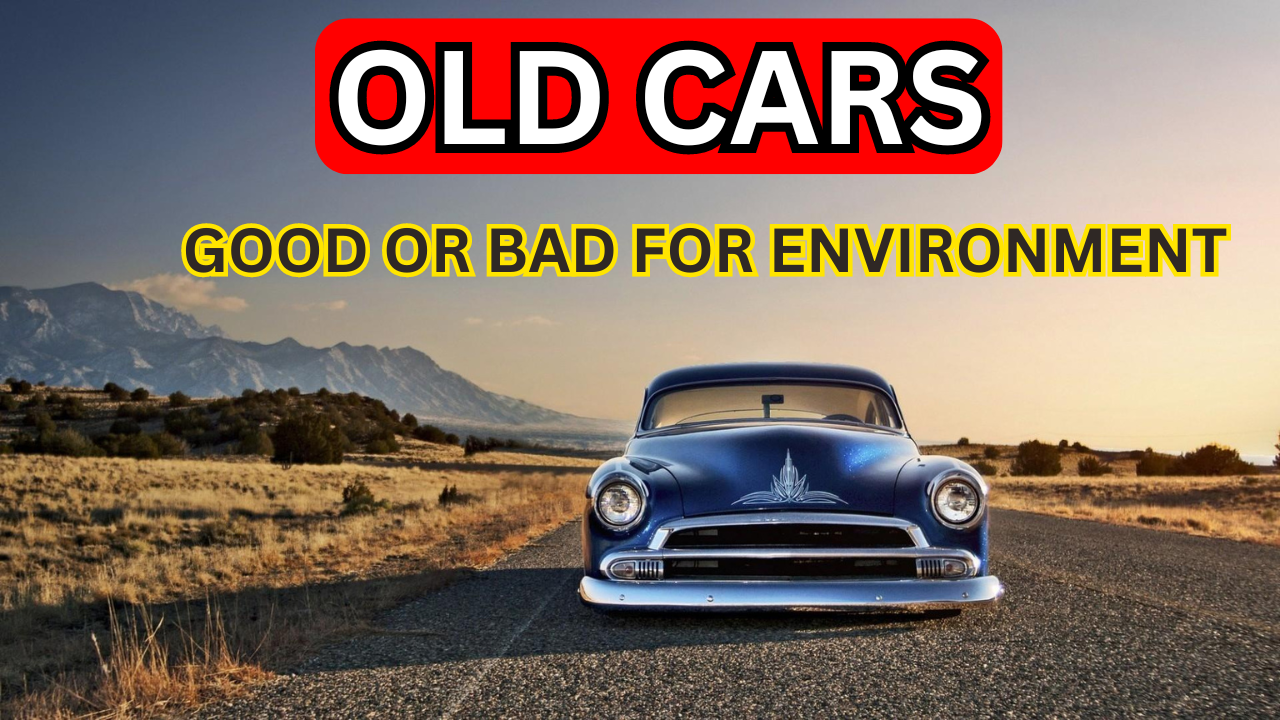Keeping old cars can be a double-edged sword for the environment. On one hand, extending the life of a vehicle means fewer resources are spent on manufacturing new ones, which is a win for sustainability. Plus, old cars often have simple technology, making them easier to repair and maintain. However, they can be less fuel-efficient and emit more pollution than newer models. The key is balance if you are driving a well-maintained classic, you might be doing more good than harm. But if the car is consuming more fuel then it definitely needs an upgrade. It is about making informed choices that benefit both you and the planet. In this article, we will look at both sides to understand if keeping an old car is good or bad for the environment.
The Environmental Impact of Old Cars:
1. More Pollution:
Old cars frequently cause more pollution than new ones. This takes place because their engines are older and not as clean. As motors age, they can burn greater gas and release greater dangerous gases into the air.
2. Less Fuel Efficiency:
Older cars commonly do not get as many miles according to the gallon as more modern models. By this method, they use more gasoline for the same distance, main to more carbon dioxide (CO2) emissions. CO2 is a fuel that contributes to global warming and climate change.
3. Outdated Technology:
New vehicles are constructed with advanced technology to reduce pollutants and improve gas efficiency. Older automobiles will not have these updates and therefore are probably worse for the environment.
The Environmental Impact of Making New Cars:
1. Resource Use:
Building a new car makes use of lots of resources like metals, plastics, and rubber. Extracting and processing those substances can damage the environment. This technique additionally releases CO2 into the environment.
2. High Energy Use:
Making new cars requires numerous strengths. Factories use energy and different electricity assets, which often come from burning fossil fuels. This contributes to the carbon footprint of each new vehicle.
3. Waste Creation:
The manufacturing process produces waste, including chemical compounds and other byproducts that may be dangerous if no longer controlled well. This waste contributes to environmental pollution.
Reasons to Keep an Old Car:
1. Reduces Waste:
Keeping an old car means one less automobile going to the junkyard. Cars have many parts that do not break down without difficulty, so preserving an old car allows for reduced landfill waste.
2. Avoids Manufacturing Impact:
By preserving an old car, you keep away from the environmental expenses of making a brand-new one. Even if an old car is not as clean, you keep at the pollutants and power used to construct a new automobile.
3. Possible Upgrades:
You can improve old cars with new components to cause them to greater efficient. For example, installing a higher exhaust device or eco-friendly tires can help lessen the car’s environmental impact.
Reasons to Replace an Old Car:
1. Modern Technology:
New automobiles have advanced technology that enables them to be extra eco-friendly. For example, electric and hybrid automobiles produce little or no to no emissions compared to old gasoline-powered cars.
2. Better Fuel Efficiency:
New automobiles generally use much less fuel for the equal distance. This method produces fewer emissions and is better for the environment, specifically in case you drive regularly.
3. Improved Safety Features:
New motors include better safety features that can assist protect the environment. For example, features that reveal tire pressure assist hold the car running successfully and decrease gas waste.
What’s the Best Choice?
Deciding whether to keep an old car or purchase a new one relies upon numerous elements. If the old car of yours runs well, does not want any repairs, and does not drive it much, maintaining it is okay. However, if it is a first-rate polluter, makes use of quite a few gasoline, or needs common maintenance, getting a new car might be higher for the environment.
Things to Consider:
- Condition of the Car: If the automobile is in accurate form and runs correctly, it might be nice to maintain it.
- Usage: How often do you power? If you force loads, a brand-new automobile with better gasoline performance is probably greater eco-friendly.
- Cost of Repairs: If repairs are pricey and common, changing the auto might be greater realistic.
Conclusion:
Both keeping an old car and buying a new one affect the environment. If you keep your old car, keep it in good shape and consider upgrading parts to be more eco-friendly. If you buy a new car, choose one that is better for the environment.
In the end, how you use and care for your car matters. Whether you keep your old car or get a new one, every small step helps the planet.
